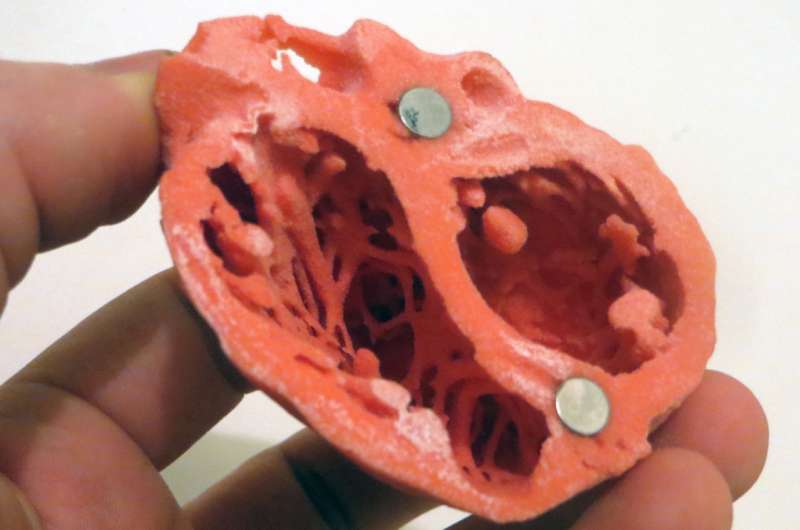Heart remodeling during pregnancy and the early postpartum period

An article published in Experimental Biology and Medicine provides new insights regarding the molecular events underlying cardiac remodeling during pregnancy and the early post-partum period. The study, led by Dr. Holly LaVoie, Department of Cell Biology and Anatomy at the University of South Carolina School of Medicine, USA, reports that changes in heart function during pregnancy and the early post-partum period in an animal model are accompanied by changes in the expression of genes encoding the extracellular matrix, proteins and substances that connect the muscle cells of the heart.
During pregnancy the heart structurally enlarges to handle the progressive increase in blood volume needed to support the developing fetus. These changes are normal and referred to as cardiac remodeling. The enlarged heart subsequently remodels to the nonpregnant state with time in the postpartum period. About 1 in 1000 women will have trouble remodeling the heart in late pregnancy or the postpartum period, where the heart remains dilated and becomes weak giving rise to a condition called peripartum cardiomyopathy. The majority of peripartum cardiomyopathy cases present in the first week after delivery. Cardiomyopathy in non-pregnant animals is associated with remodeling of the extracellular matrix. However, the role of the extracellular matrix in cardiac remodeling during pregnancy is not known. Understanding the molecular, structural and functional changes that naturally occur in the heart during pregnancy and the early postpartum period will be helpful in managing peripartum cardiomyopathy.
In the current study, Dr. LaVoie and colleagues, used microarray technology and functional assessments to determine if changes in the expression of extracellular matrix protein genes accompanied functional changes in the heart during pregnancy in an animal model. As a group, genes encoding extracellular matrix molecules showed a high level of alteration during late pregnancy and postpartum. Many of the changes involved genes coding structural proteins like collagens, protease enzymes which breakdown the matrix, and inhibitors of these proteases. Furthermore, changes in gene expression correlated with changes in heart function measured by echocardiography. These studies show the postpartum period as a time of active change for gene expression and heart function. Dr. LaVoie said "Changes in the heart during pregnancy are gradual and peak at late pregnancy, while changes in the early postpartum period are more dramatic. Identifying the molecules that contribute to cardiac remodeling during this transitional postpartum period may help to better understand the failure to remodel that occurs during peripartum cardiomyopathy in women."
Dr. Steven R. Goodman, editor-in-chief of Experimental Biology & Medicine, said "LaVoie and colleagues have demonstrated substantial changes in extracellular matrix gene expression during the postpartum period. These studies form the basis for future studies on changes in extracellular matrix expression in postpartum cardiomyopathy."
More information: Megan E Parrott et al. Feature Article: Maternal cardiac messenger RNA expression of extracellular matrix proteins in mice during pregnancy and the postpartum period, Experimental Biology and Medicine (2018). DOI: 10.1177/1535370218818457

















